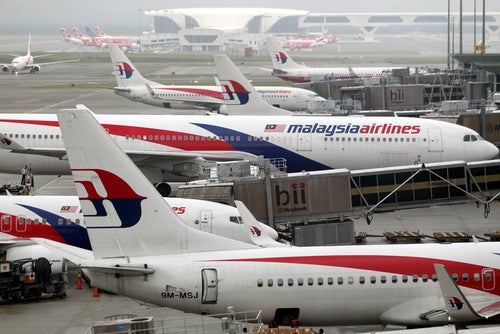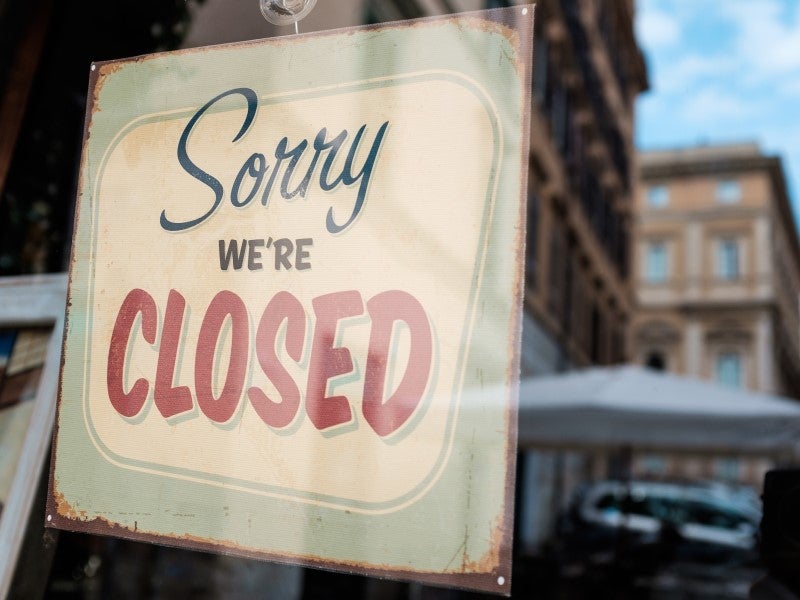However, lessors, faced with VAT problems and risk problems linked
to small numbers of customers, could be hit hard by any Russian
credit crunch. Maryann Tan reports
Demographically speaking, Russia’s economy does not possess all
the desirable traits possessed by many of its emerging Asian
counterparts.
Characterised by a low national birth rate and male life
expectancy at an alarming 59 years, Russia’s population headcount
has been on the decline since peaking in the early 1990s.
Without the key resource of a large and young labour force to
power the economy, it is left to capital investment to pick up the
slack.
Indeed, economists expect massive increases in capital spending
will have to take place for Russia to sustain the average annual
gross domestic product (GDP) growth of seven per cent registered in
the past decade.
How well do you really know your competitors?
Access the most comprehensive Company Profiles on the market, powered by GlobalData. Save hours of research. Gain competitive edge.

Thank you!
Your download email will arrive shortly
Not ready to buy yet? Download a free sample
We are confident about the unique quality of our Company Profiles. However, we want you to make the most beneficial decision for your business, so we offer a free sample that you can download by submitting the below form
By GlobalDataRussia’s under-investment in infrastructure is partly reflected
in its investment-to-GDP ratio, currently just less than 20 per
cent. That’s half the rate of China, the world’s fastest-growing
economy, and lower than many emerging economies of Central and
Eastern Europe.
Russia’s government under former president Vladimir Putin knows
this too well, hence the plan for an investment programme worth
$1trillion over the next 10 years and the launch of National
Priority Projects aimed at providing adequate healthcare, housing
and education, and ensuring food security.
With the Putin era far from over, and the petrodollars it is
still raking in, Russia is not expected to back-track on its
growth-oriented policies, forming an ideal backdrop for leasing as
both the private and public sector seek funds to be poured into
roads, railways, telecommunications and the energy
sector.
Reflecting the focus on infrastructure development, latest
industry statistics by the Russian leasing association, ROSLeasing,
show the fastest volume growth in leasing last year was in rail
transport (287 per cent), oil and gas equipment (900 per cent) and
metallurgical equipment (763 per cent).
There is certainly enough new business to go around.
“We have never planned to penetrate international markets. The
Russian economy is growing very fast and we risk losing more than
we can get if we were to [divert] some of our attention to other
countries,” energy-sector specialist lessor Business Alliance told
Leasing Life when asked if the company had plans to offer
services in other parts of the CEE.
One apparent trait among the Russian lessors reviewed here is
their tendency to carry a highly concentrated portfolio. VTB
Leasing, one of the top-five lessors and a unit of the
second-largest bank in Russia, is estimated to have 95 per cent of
its portfolio tied to its top 20 customers.
“Concentration is something that happens in young companies and
emerging markets as well, it’s not unusual,” comments James
Longsdon, an analyst at Fitch Ratings, pointing out that
concentration risk tends to be a feature of big-ticket
lessors.
Under prosperous conditions, this concentration risk hasn’t
weighed on the asset quality of lessors, but their resilience
remains untested in the absence of a downturn.
Tellingly, of all the Russian leasing firms reviewed and rated
by Fitch, none carry a triple A rating, even if some of them are
effectively state-owned institutions. Of course, Russia itself does
not carry a AAA sovereign rating.
Still, this doesn’t prevent leasing companies from growing their
respective portfolios in the sectors they are already focused
on.
As an emerging market for leasing, however, Russian lessors have
a frustrating tax regime to contend with.The glacial pace at which
value added tax (VAT) takes to be refunded to lessors is becoming a
perennial problem for leasing companies.
VAT
Lessors pay a VAT rate of 18 per cent (known as input VAT) upon
acquisition of an asset, but, typically, expect not to recover the
VAT from the tax authorities. Instead, they are expected to get
this back through lease rentals from their customers over the
period of the lease agreement, locking up precious cash and hurting
returns.
As a result, lease rentals are distortedly higher and lease
tenors shorter to compensate for the deferred recovery of VAT. For
reasons of transparency, some lessors specify the added premium
imputed into lease charges and attribute that amount to
non-refundable VAT.
While both foreign and domestic lessors are hopeful for some
reform in practice by the tax authorities, none are holding their
breath for it to change any time soon.
“We are hoping for changes to come, but, on the other hand, we
also have to be fair because the VAT topic is new for authorities
in Russia. If you have a leasing deal with a huge VAT payback or
receivable from the state, if I were the state I would still ask
what’s going on there… because I have to pay a lot out. In Russia,
it’s normal that you at least have an investigation of the deal
behind it,” comments Alexander Schmidecker, head of CEE at
UniCredit Leasing.
“In our opinion, this issue, together with the credit crunch,
are the main factors hindering the development of leasing in
Russia,” says a spokesman for the leasing company Business
Alliance.
Bob Wallingford, a tax partner at KPMG Russia, points out
another hindrance to leasing realising its full potential in
Russia. In Russia, the title to an asset does not give lessors the
same level of security that it would in developed economies.
Lessees can initiate court proceedings that greatly delay the
repossession of the asset by lessors.
“If you look up in the court cases how many times lessors have
used the courts to get assets back, it’s not many. Instead, they
negotiate with the lessee to get the asset back, which is not
typical in the West. In the West, it’s not negotiated because the
lessee knows they must give it back quickly. In Russia, there are
very few cases of repossession of leased assets,” he
said.

Lease and loan
The limitations to rights of lessors has led to many financial
institutions treating a lease like a loan, asking for additional
collateral when, under typical agreements, the asset itself would
make for sufficient security.
Yet, these issues are hampering the growth of leasing,
especially finance leases, which are permitted to accelerate the
depreciation of an asset, according substantial tax
advantages.
“I think it’s important for everyone in Russia to view leasing
as a very significant way to fund the investment needs of the
growing Russian economy. Energy, manufacturing, transport – because
it has tremendous potential and that potential is not completely
realised now,” Wallingford notes. “If the security and the VAT
issues were resolved, that would significantly help the
industry.”







